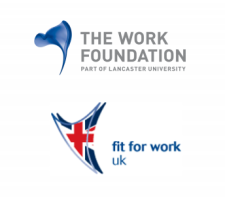March 3, 2015
Female empowerment within UK workforce on rise but too few in full time jobs
 A strengthening economy has helped the UK to rise up to 14th position out of 27 OECD countries in PwC’s annual Women in Work Index, but it still lags well behind many other countries in overall female economic empowerment. The Nordic countries continue to lead the Index, with Norway maintaining pole position, followed by Denmark and Sweden. These three countries have consistently occupied the top three positions in the Index since 2000 and the reason is that they all have a much fairer balance between genders on managing work and family life. By comparison, although the UK is in the top 10 performing OECD countries on female participation in the labour force, this is negatively impacted due to the low proportion of women in full-time employment; suggesting that flexible working is having a negative impact on many women’s career prospects.
A strengthening economy has helped the UK to rise up to 14th position out of 27 OECD countries in PwC’s annual Women in Work Index, but it still lags well behind many other countries in overall female economic empowerment. The Nordic countries continue to lead the Index, with Norway maintaining pole position, followed by Denmark and Sweden. These three countries have consistently occupied the top three positions in the Index since 2000 and the reason is that they all have a much fairer balance between genders on managing work and family life. By comparison, although the UK is in the top 10 performing OECD countries on female participation in the labour force, this is negatively impacted due to the low proportion of women in full-time employment; suggesting that flexible working is having a negative impact on many women’s career prospects.












 The world of work and the workplace is always changing. We know it. You know it. In fact, there are a whole host of people that know it, but depending on what side of the professional fence you sit on, you might approach it in different ways, looking through a different lens or with a specific focus. Or are you already bridging the professional gap? Workplace change and the numerous ramifications of it are well documented. In a world that is changing, at frightening pace, it is strange to think that many of the ways in which we work are so entrenched in 20th century thinking. We need to break away from this and outline what the future is going to look like and how we should adapt. Or do we already have the answers? This ground is well trodden. However, it could be time to reassess our thinking and the way we approach this challenge, ensuring it becomes the norm for organisations around the world.
The world of work and the workplace is always changing. We know it. You know it. In fact, there are a whole host of people that know it, but depending on what side of the professional fence you sit on, you might approach it in different ways, looking through a different lens or with a specific focus. Or are you already bridging the professional gap? Workplace change and the numerous ramifications of it are well documented. In a world that is changing, at frightening pace, it is strange to think that many of the ways in which we work are so entrenched in 20th century thinking. We need to break away from this and outline what the future is going to look like and how we should adapt. Or do we already have the answers? This ground is well trodden. However, it could be time to reassess our thinking and the way we approach this challenge, ensuring it becomes the norm for organisations around the world.













February 11, 2015
This isn’t a golden era for small business; it’s more interesting than that
by Mark Eltringham • Comment, Flexible working, Public Sector, Technology
More →